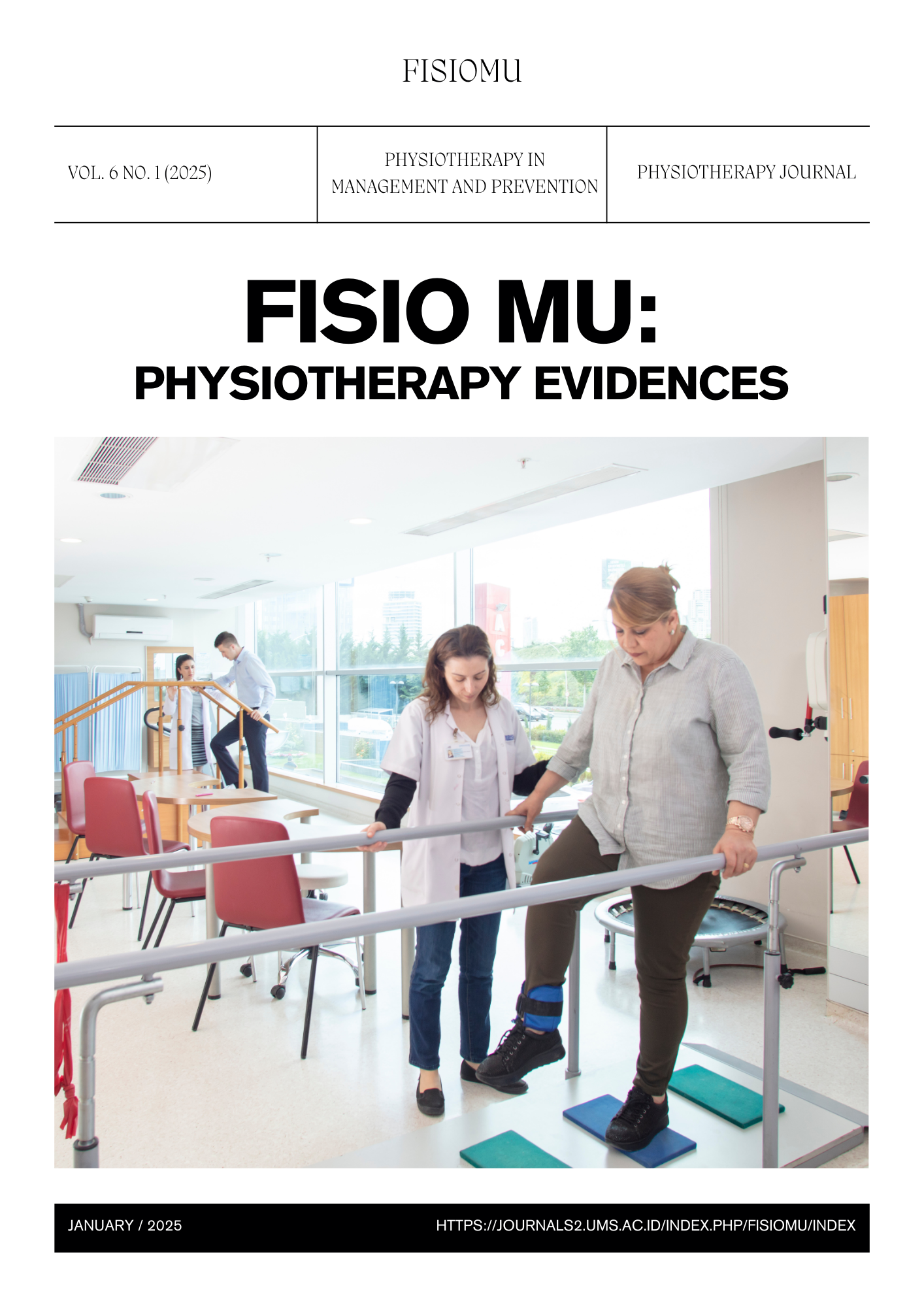Editorial Board Reviewers Peer Review Process Author Guidelines Publication Ethics Plagiarism Policy Focus and Scope Indexing and Abstracting Article Processing Charge Contact Journal Metrics Open Access Policy
Archives
Next-Gen Movement
Vol. 7 No. 1 (2026)Furthermore, Next-Gen Movement reflects a commitment to addressing contemporary challenges in movement health, including pediatric developmental disorders, lifestyle-related movement dysfunctions, aging populations, and inclusive rehabilitation for individuals with disabilities. This theme encourages interdisciplinary collaboration, translational research, and innovative educational approaches to prepare physiotherapists for the evolving demands of global healthcare systems.
Ultimately, Next-Gen Movement envisions physiotherapy as a dynamic, adaptive discipline that empowers individuals and communities to achieve optimal movement, functional independence, and quality of life in the next generation.

Integrating Local Wisdom into Sustainable Physiotherapy Practices
Vol. 6 No. 2 (2025)Integrating Local Wisdom into Sustainable Physiotherapy Practices invites scholarly contributions that explore how traditional knowledge, cultural values, and indigenous practices can be harmonized with modern physiotherapy to create holistic, community-accepted, and sustainable rehabilitation approaches. This theme emphasizes the importance of cultural sensitivity and local relevance in physiotherapy, encouraging innovations that respect and incorporate local movement traditions, healing methods, and community engagement. Submissions may include original research, case reports, or community-based studies that demonstrate how local wisdom enhances the effectiveness, accessibility, and sustainability of physiotherapy services, particularly in diverse and underserved populations.

Physiotherapy in Management and Prevention
Vol. 6 No. 1 (2025)The journal Physiotherapy in Management and Prevention serves as a platform for disseminating the latest research, innovations, and practical approaches in the field of physiotherapy. This journal focuses on exploring physiotherapeutic strategies for managing various conditions and preventing physical dysfunctions across the lifespan.
Key themes include:
- Evidence-based practices for the rehabilitation of musculoskeletal, neurological, and pediatric conditions.
- Preventive measures aimed at enhancing physical health, reducing the risk of injuries, and promoting optimal function.
- Holistic approaches integrating posture correction, nutritional guidance, and movement analysis.
- Community-based physiotherapy interventions to address public health challenges and improve quality of life.
This journal is dedicated to physiotherapy practitioners, educators, researchers, and students, aiming to bridge the gap between theory and practice and contribute to the advancement of global physiotherapy standards.

Personalized Physiotherapy
Vol. 5 No. 2 (2024)The latest issue of Fisioterapi Fisiomu focuses on a highly relevant and innovative topic in the field of physiotherapy: "Personalized Physiotherapy". In this Vol. 5 No. 2 (2024) edition, we highlight individualized therapeutic approaches tailored to meet the specific needs of each patient. Personalized Physiotherapy aims to enhance treatment effectiveness through thorough assessments and customized intervention strategies.

Physiotherapy New Era
Vol. 5 No. 1 (2024)New Era Physiotherapy, as discussed in Fisiomu Journal, Vol. 5 No. 1 (2024), represents a transformative shift in the field, where traditional practices blend seamlessly with cutting-edge technological advancements. This evolving approach is not limited to addressing physical ailments; it focuses on a more comprehensive view of health, encompassing emotional, mental, and social well-being.
The integration of modern technologies, such as AI-driven assessments, tele-rehabilitation, and digital health tracking, enables physiotherapists to provide more precise diagnoses and tailored interventions. These tools allow for real-time monitoring and adaptive treatment plans, ensuring a more personalized and effective approach to patient care.
The Fisiomu Journal highlights the growing importance of patient-centered care in this new era, emphasizing the need for education, self-management, and preventative strategies. Patients are empowered to play an active role in their recovery, while physiotherapists continue to support them through evidence-based treatments and compassionate care.
Furthermore, the article underscores how New Era Physiotherapy addresses the diverse needs of various populations, including pediatrics, geriatrics, and athletes, creating a future where physiotherapy is more accessible, adaptable, and impactful. This approach marks a significant milestone in the field, setting the stage for enhanced long-term functional outcomes and a higher quality of life for individuals across all ages.











